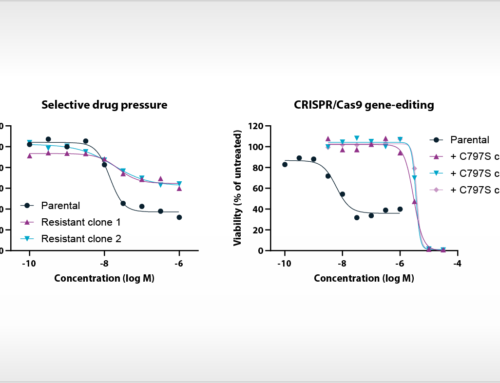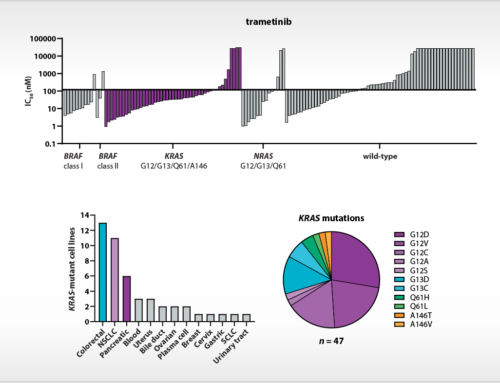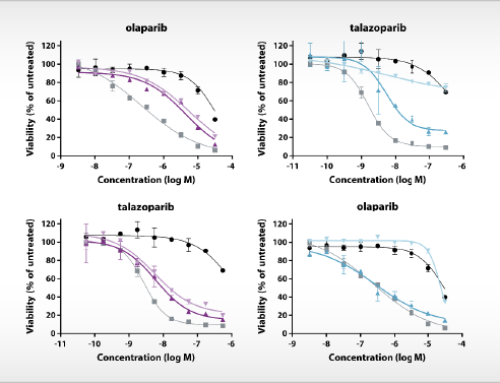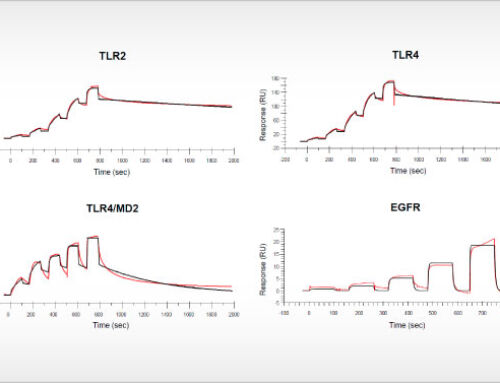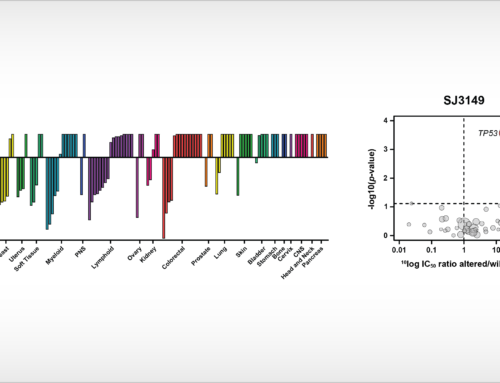Oss, September, 2nd, 2016 – Cancer cell line panels are important tools to determine the activity and selectivity of novel cancer therapeutics, before experiments in animal models and trials in human patients are initiated. In a scientific article that appeared online today in Molecular Cancer Therapeutics, a leading journal from the American Association of Cancer Research (AACR), NTRC scientists describe the comparative analysis of the anti-proliferative activity of 122 publicly known anti-cancer agents in the Oncolines™ cell panel. The compounds studied include many recently approved targeted therapies, cytotoxic agents, and epigenetic modulators. For 30 % of compounds this is the first cancer cell panel profiling study.
Reproducibility of Oncolines™ profiling was determined over a period of three years and consistency of results was compared to other profiling studies, such as National Cancer Institute (NCI-60) cell line panel and the Cancer Cell Line Encyclopedia (CCLE) of The Broad Institute. Comparison of the Oncolines™ profiles of the 122 reference agents revealed twenty-six clusters of compounds with common mechanisms of action, including nine clusters that have not been reported before, such as clusters of EZH2, bromodomain (BET) and TTK inhibitors. Unexpected clusterings were investigated further with biochemical experiments. For instance, the BTK inhibitor ibrutinib, which clustered with EGFR inhibitors, was shown to cross-react with EGFR in biochemical kinase enzymes. Aurora kinase inhibitors separated into two clusters, related to Aurora A or pan-Aurora selectivity. Similarly, twelve inhibitors in the PI3K/AKT/mTOR pathway separated into different clusters, reflecting different biochemical selectivity and different genetic targeting.
The study shows that Oncolines™ profiling is reproducible and robust, and that cell panel profiling is an excellent tool for the unbiased classification of anti-proliferative compounds. Comparative cell panel profiling (OncolinesProfiler™) can provide more insight into the mechanism of action of new candidate drugs, and can be used to determine similarity or differentiation of new compounds from existing anti-cancer agents.
About NTRC
NTRC is a precision medicine company dedicated to the development of new anti-cancer drugs. NTRC facilitates the development of novel therapies by providing cancer cell line profiling services (Oncolines™, OncolinesProfiler™, and SynergyFinder™), target residence time measurements for protein kinases (ResidenceTimer™), and developing new enabling technologies, such as NFK GreenScreen™, an assay reagent for measuring the activity of the tryptophan metabolizing enzymes IDO1 and TDO. In addition, NTRC develops own novel targeted therapies based on small molecules, such as inhibitors of IDO1 and TDO for cancer immunotherapy and selective inhibitors of TTK (Mps1) protein kinase for chromosomal unstable tumours. For more information please visit www.ntrc.nl or contact info@ntrc.nl


